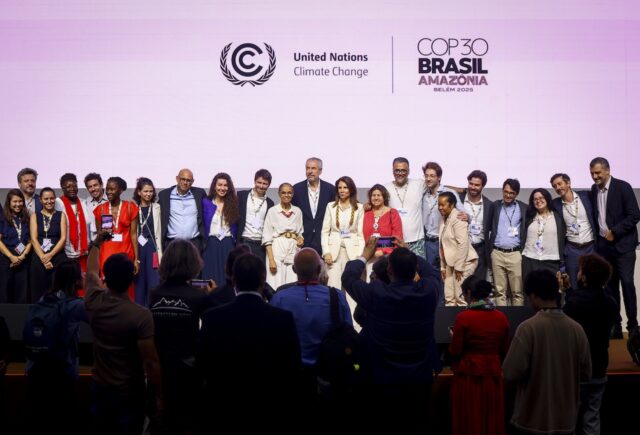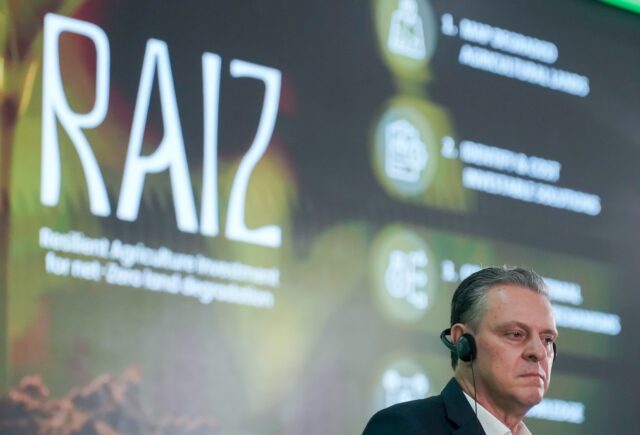The Innovating Justice Fund aims to help deliver equal access to justice for all by investing in startups that improve access to justice services for disadvantaged communities in emerging markets

In brief
- 1bn people face serious justice problems annually of which 55% are unresolved or resolved in a way that is felt as unfair
- The fund will invest in early and mid-stage startups which offer services that help prevent and resolve justice-related issues
- Investments will be primarily made in sub-Saharan Africa and the MENA regions
Dutch impact investor FOUNT and social enterprise HiiL (The Hague Institute for Innovation of Law) have launched the Innovating Justice Fund to invest in startups that improve access to justice services for disadvantaged communities in emerging markets.
The fund, which has received financing from the Dutch government, will provide both funding and technical assistance to early and mid-stage startups in emerging markets, primarily in the sub-Saharan Africa and the MENA regions, which offer services that help prevent and resolve justice-related issues at scale.
The fund, which will focus on the areas of employment, family, fraud, crime, land, housing and neighbour conflicts, has been launched in response to the inability of current justice systems to deliver equal access to justice for all. It has a fundraising target of €10m and will invest in up to 15 startups.
According to HiiL, every year 1bn people face serious justice problems, 55% of which remain unresolved or are resolved in a way that is felt as unfair, leading to extensive suffering, erosion of social cohesion, exacerbated inequalities, and disruption of economic development.
Bob Assenberg, managing partner and co-founder of FOUNT, said the fund was the next step on from the Justice Accelerator, an annual programme run by HiiL with support from the Dutch government, to help justice startups “to unblock growth challenges and ensure investment-readiness”. He said that as the first impact fund to focus on SDG 16 – peace, justice and strong institutions – it was being seen a “demonstration fund” to prove to investors that money as well as impact could be made.
“A lot of people think you can only address these issues by supporting NGOs on a donor basis. So, this is really about demonstrating and proving that these companies have a strong business model, that they can be financially sustainable while at the same time, helping people who don’t have access to justice.”
Capital and technical assistance
Assenberg explained that HiiL, which operates through a number of local hubs and partners in emerging markets, would provide much of the pipeline of opportunities but that other companies would be considered as long as they could provide local technical assistance to them. “It’s not just about the money, the technical assistance to get these startups to scale needs to be there too,” he said.
Assenberg explained the team were currently in “fundraising mode” and planned to make several investments in the next couple of months and employ a blended capital structure, which he hoped would generate more interest in the fund and attract investors with different risk profiles and return requirements.
He explained that the businesses targeted would represent a mixture of justice-related areas. “We’ve been looking at businesses providing user-friendly contracts at a lower fee level than would typically be offered by solicitors, or companies that provide access to claiming platforms in countries where people don’t understand what their government’s legal procedures are or have no way of accessing them. We are also looking at preventive programmes offering businesses KYC checks. So, it’s a really broad arena but ultimately, start-ups that can help people with personal or businesses related legal help at the lower end of the market.”
The fund team also aims to have a positive impact on gender equality (SDG 5), decent work and economic growth (SDG 8) and reduced inequalities (SDG 10).
Asked about why it was important to have an investment fund that targeted justice inequity, Ronald Lenz, programme director for the Justice Accelerator at HiiL, said: “Startups with game-changing business models are a key driver in closing the justice gap. After having supported more than 130 startups, it was a logical next step for HiiL to partner with FOUNT and enable fast growing ventures with capital to scale their impact.”






